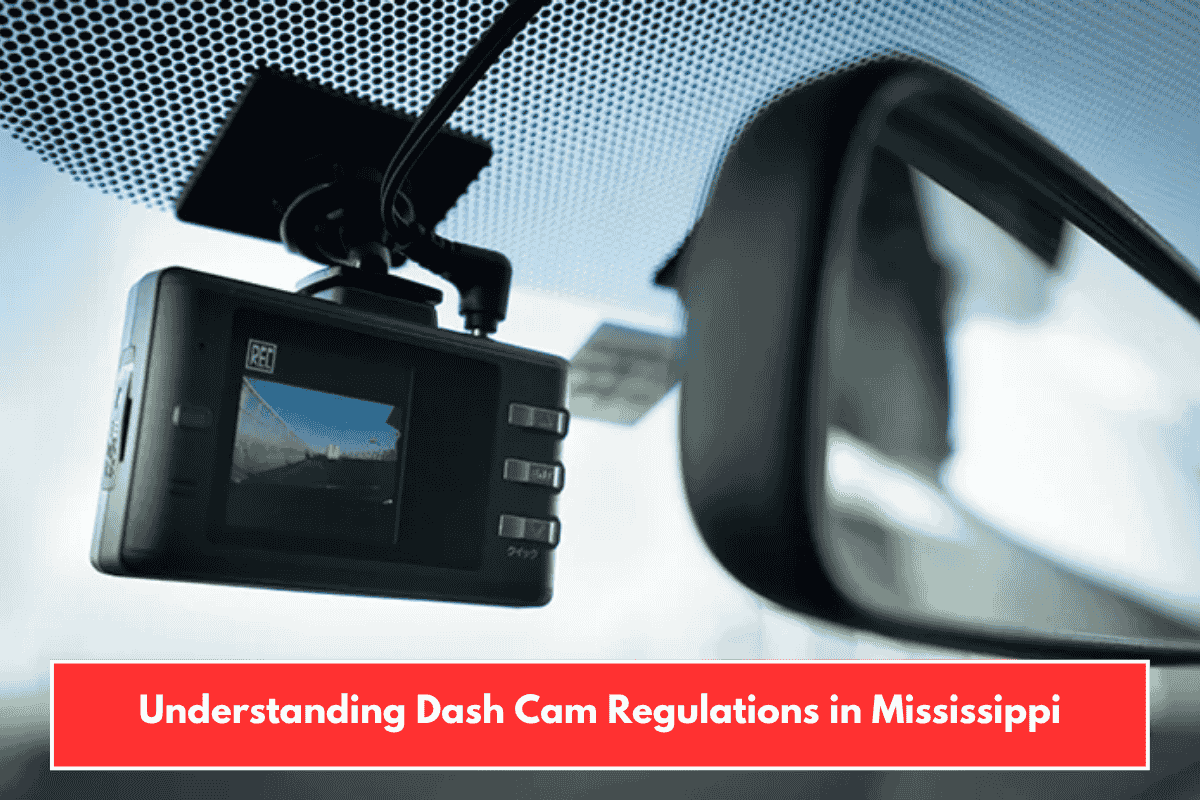Dash cameras (dash cams) have become increasingly popular among drivers in Mississippi and across the United States. These cameras can provide crucial evidence in case of accidents, traffic disputes, or legal matters. However, before installing or using a dash cam in Mississippi, it’s important to understand the state’s regulations regarding their use to ensure you are in compliance with the law. This guide will break down the essential laws and regulations concerning dash cams in Mississippi.
Are Dash Cams Legal in Mississippi?
Yes, dash cams are legal in Mississippi. You are allowed to install a dash cam in your vehicle to record your driving, provided you follow the state’s general rules about privacy, road safety, and equipment use. Dash cams are a useful tool for documenting accidents, road incidents, and even interactions with law enforcement.
Privacy Concerns: Recording Video and Audio
While recording video from your dash cam is generally allowed, there are certain privacy laws to consider when it comes to recording audio in Mississippi. Here’s what you should know:
- Video Recording: You can legally record video from your dash cam in public spaces, such as on the road, on highways, and at intersections. Since these areas are public, you do not typically need permission to record video footage. Dash cams that focus solely on video capture, without audio, are generally fine to use in Mississippi.
- Audio Recording: When it comes to recording audio, Mississippi is a one-party consent state. This means that you are allowed to record conversations or audio as long as one person involved in the conversation consents to the recording. For example, if you are recording a conversation with a police officer, you are allowed to do so without needing the officer’s consent, as long as you are a participant in the conversation. However, if you are recording audio of a conversation between two other people without their knowledge or consent, it may violate privacy laws.
- Important note: Always be mindful of the fact that certain interactions, like conversations with others outside your vehicle or in private spaces, may require more careful consideration to avoid infringing on privacy rights.
Dash Cam Placement and Obstructions
Another key consideration in Mississippi is where you place the dash cam in your vehicle. The dash cam should be mounted in a way that does not obstruct your view or interfere with the safe operation of the vehicle.
- Windshield Obstruction: According to Mississippi law, you are not allowed to place anything on your windshield that significantly obstructs the driver’s line of sight. Dash cams should be mounted in a way that does not block critical areas, such as the driver’s view of the road, mirrors, or traffic signals.
- Mounting the Dash Cam: It’s advisable to mount the dash cam on the lower part of the windshield or behind the rearview mirror, as long as it does not obstruct the driver’s view or impede the operation of any vehicle features, like airbags. Always make sure that the camera’s placement does not pose a safety risk in case of an accident.
Use of Dash Cam Footage in Legal Proceedings
Dash cams can be a valuable tool for documenting accidents or incidents that occur on the road. In Mississippi, footage from a dash cam can potentially be used as evidence in legal proceedings, such as car accidents, traffic disputes, or criminal investigations. However, there are a few things to keep in mind:
- Admissibility in Court: If you plan to use dash cam footage in court, it must be clear, relevant, and properly preserved. It’s important that the footage is not tampered with or altered in any way, as it may not be admissible as evidence.
- Providing Footage to Authorities: If you are involved in an accident or a legal case where dash cam footage is important, you may need to provide the footage to law enforcement or your insurance company. Be prepared to share the recordings as necessary and in compliance with the relevant legal processes.
Dash Cams and Law Enforcement Interactions
Many drivers use dash cams to record interactions with law enforcement officers. While these recordings can help protect your rights and provide documentation of encounters, there are some important points to remember:
- Recording Police Officers: You are allowed to record police officers while they are performing their official duties in a public space, including traffic stops. However, you must do so without interfering with their work. In Mississippi, as in other states, you have the right to record police officers as long as you are not obstructing their duties or violating any other laws (e.g., obstructing traffic, being overly confrontational).
- Know Your Rights: If you are recording a police officer, make sure to follow the officer’s instructions and be respectful. While recording is generally legal, interfering with police actions can lead to additional legal complications.
Dash cams are legal to use in Mississippi, and they provide a helpful way to document driving events, including interactions with law enforcement and other motorists. However, it is essential to understand the legal restrictions around privacy, audio recording, and mounting the dash cam in a safe location. Always be mindful of privacy laws, avoid obstructing your windshield, and ensure that your dash cam doesn’t interfere with the safe operation of your vehicle.
By following these guidelines, you can safely and legally use a dash cam in Mississippi, helping you protect yourself and your rights on the road.
SOURCES
[1] https://www.blackboxmycar.com/pages/are-dash-cams-legal-in-my-area-dash-cam-laws-in-every-us-state
[2] https://www.ddpai.com/blog/dash-cam-laws/
[3] https://www.expertmarket.com/dash-cams/dash-cam-laws-by-state
[4] https://worldpopulationreview.com/state-rankings/dash-cam-laws-by-state
[5] https://matrackinc.com/dash-cam-laws-by-states/














